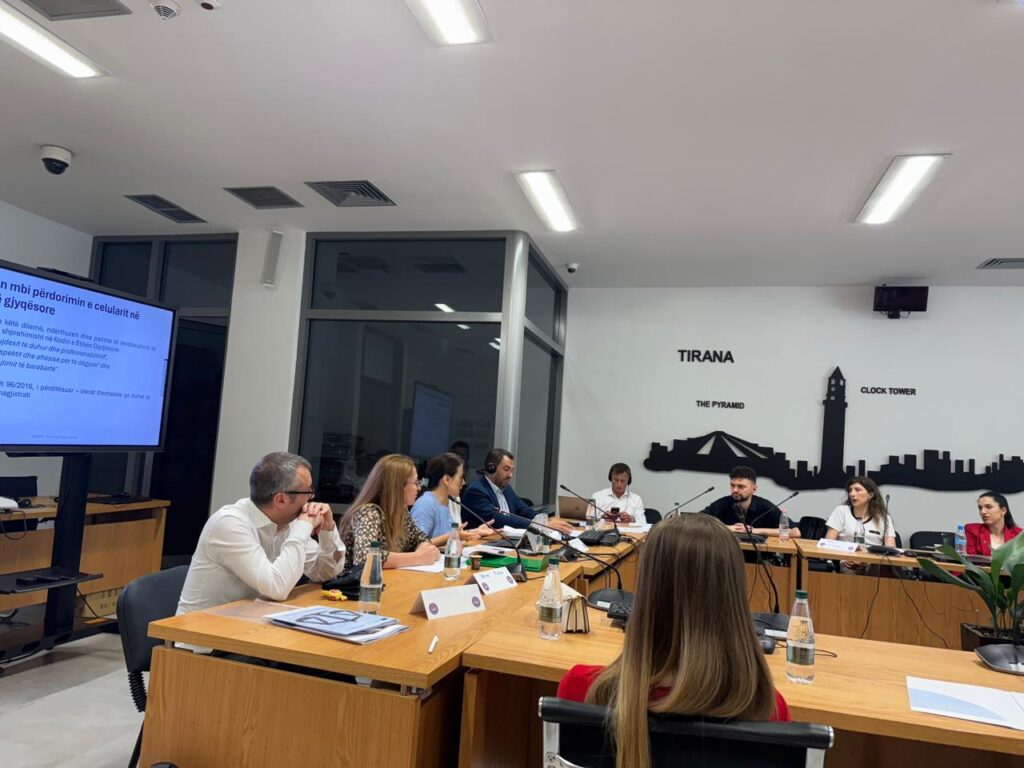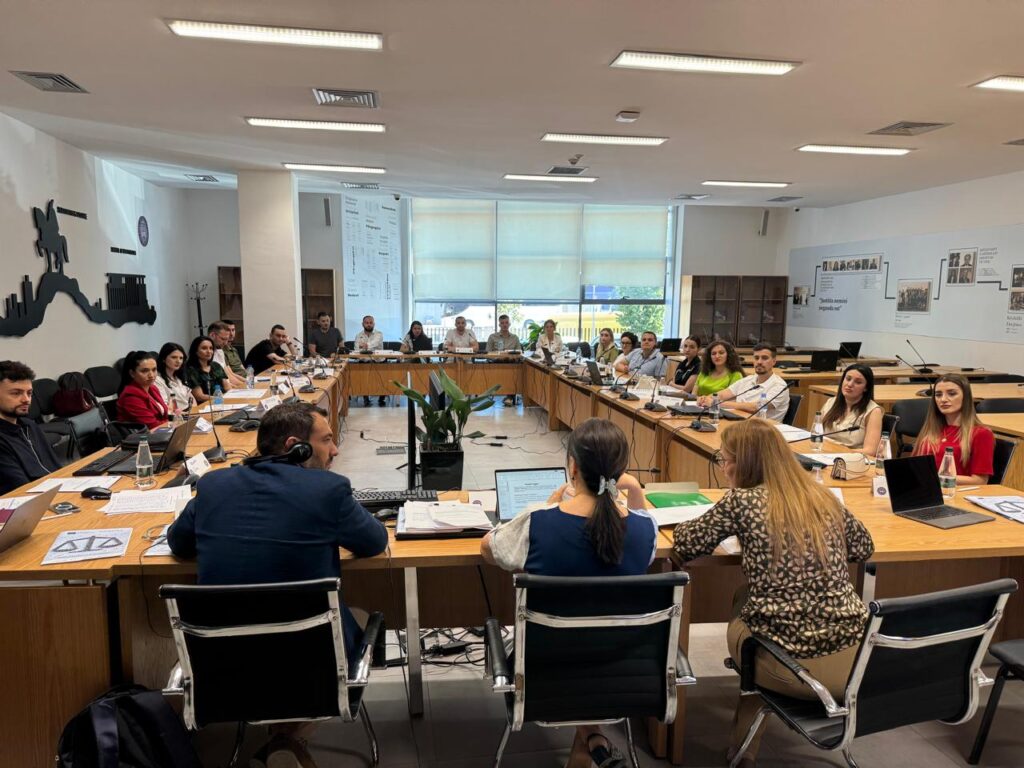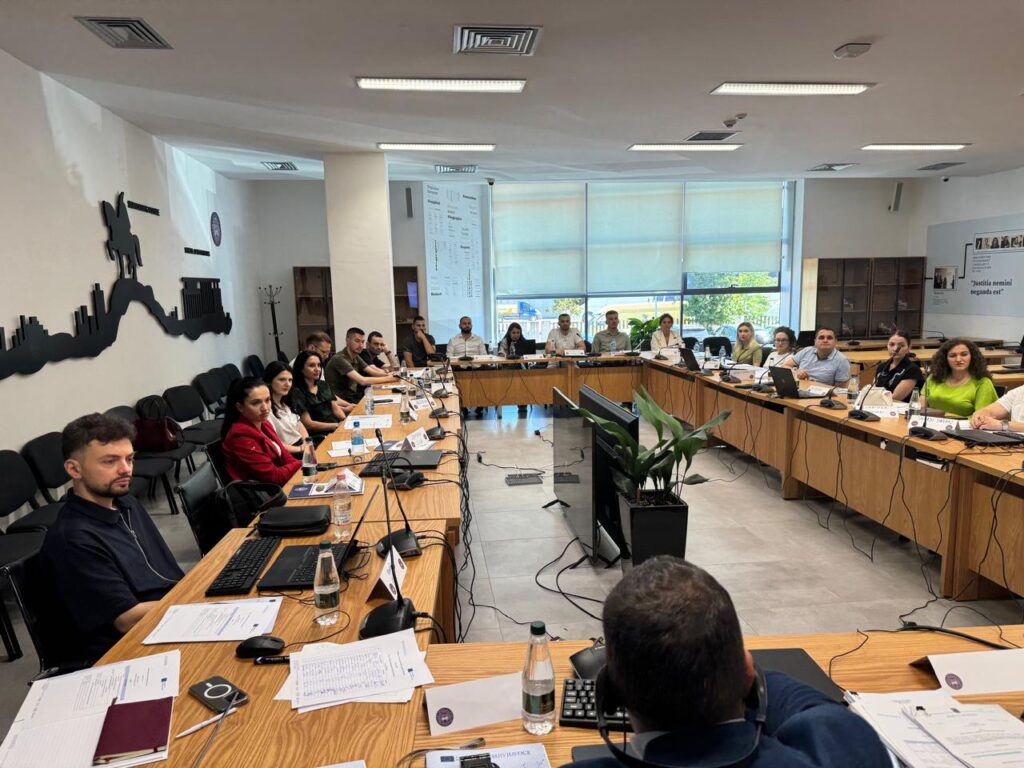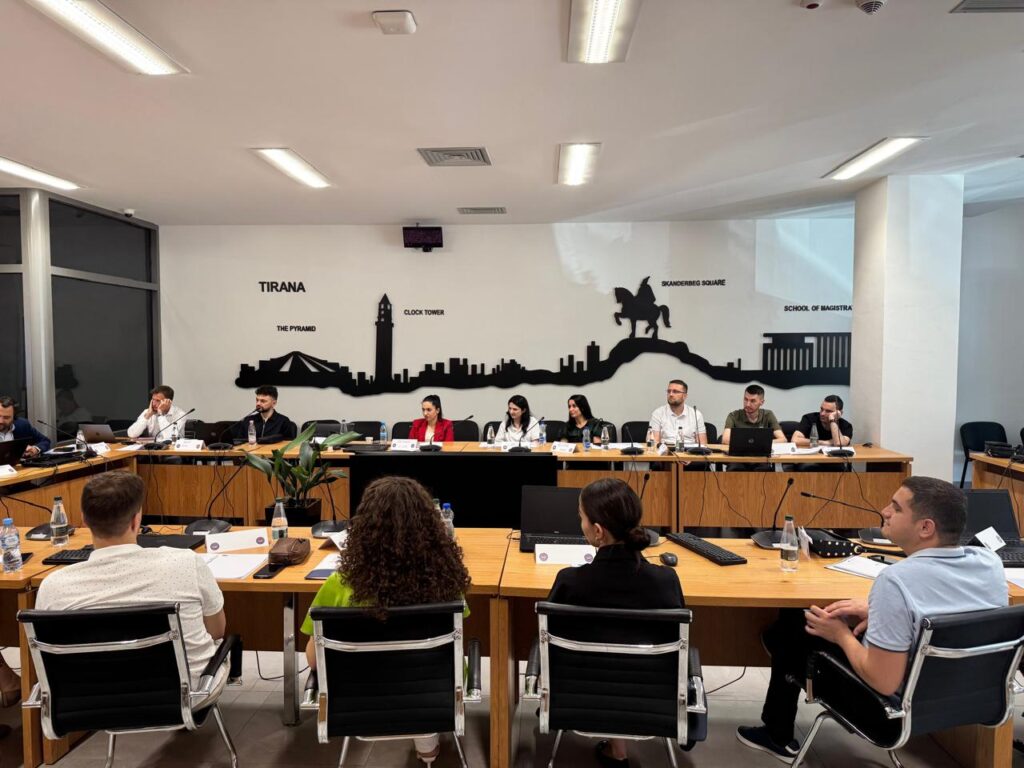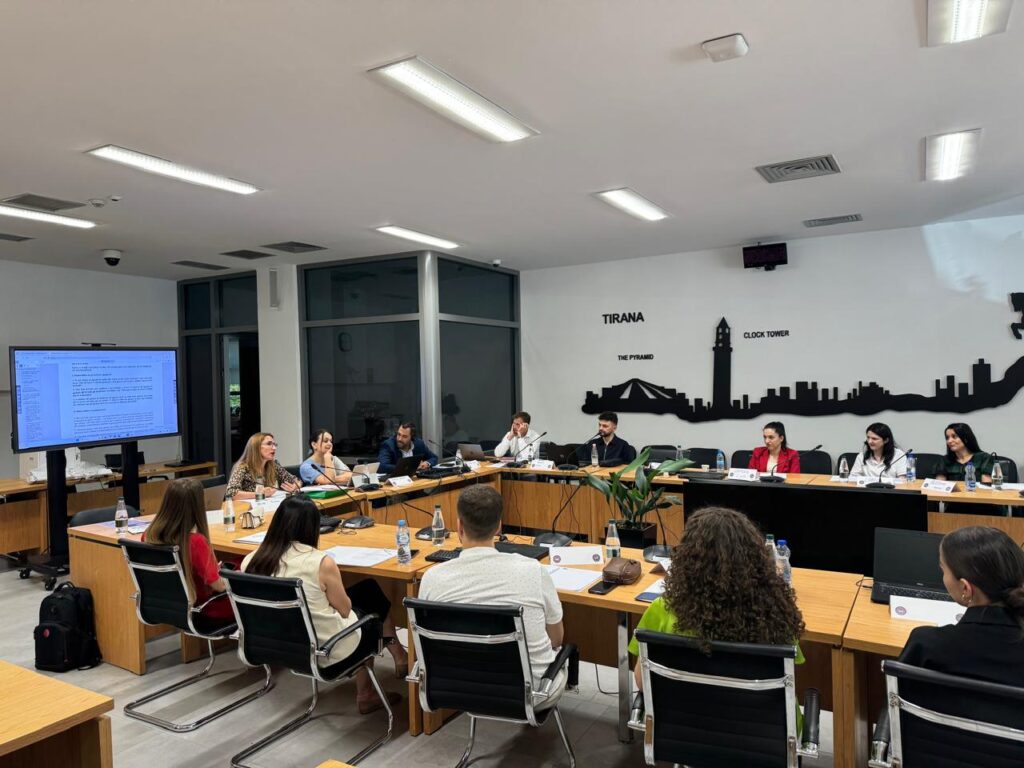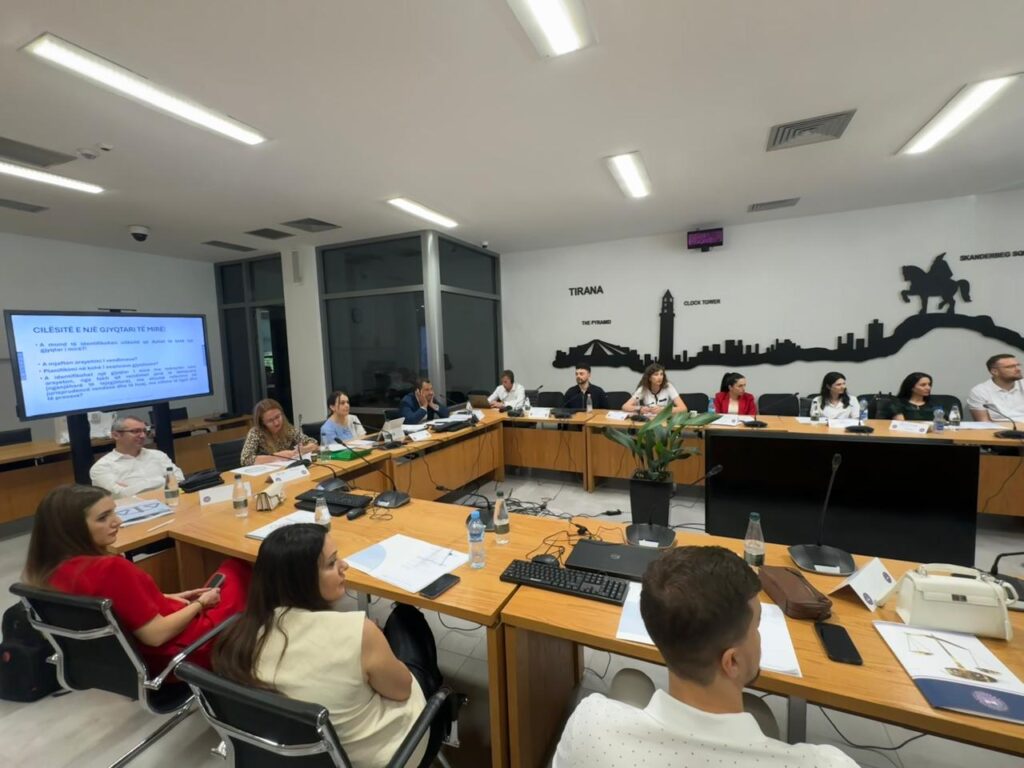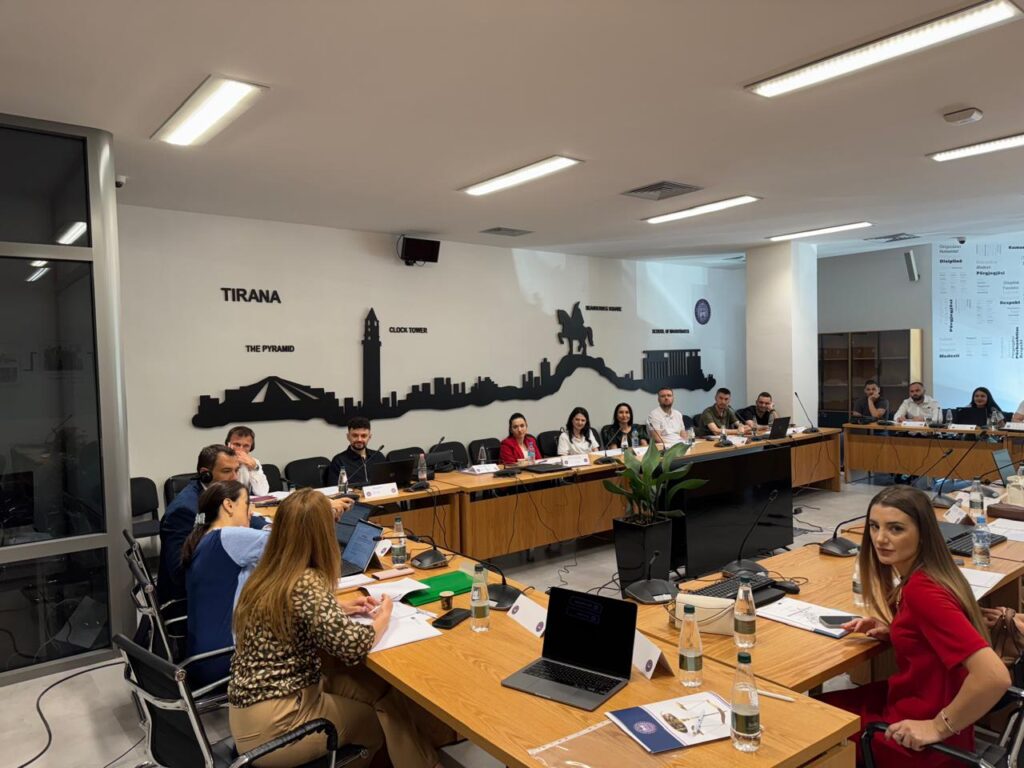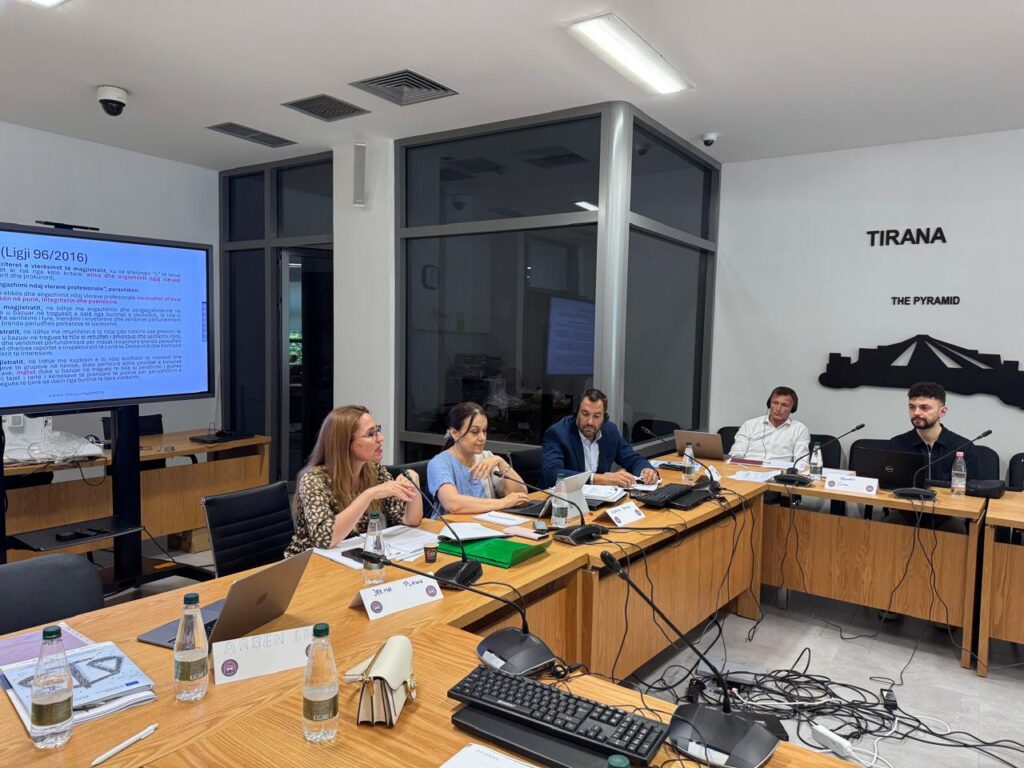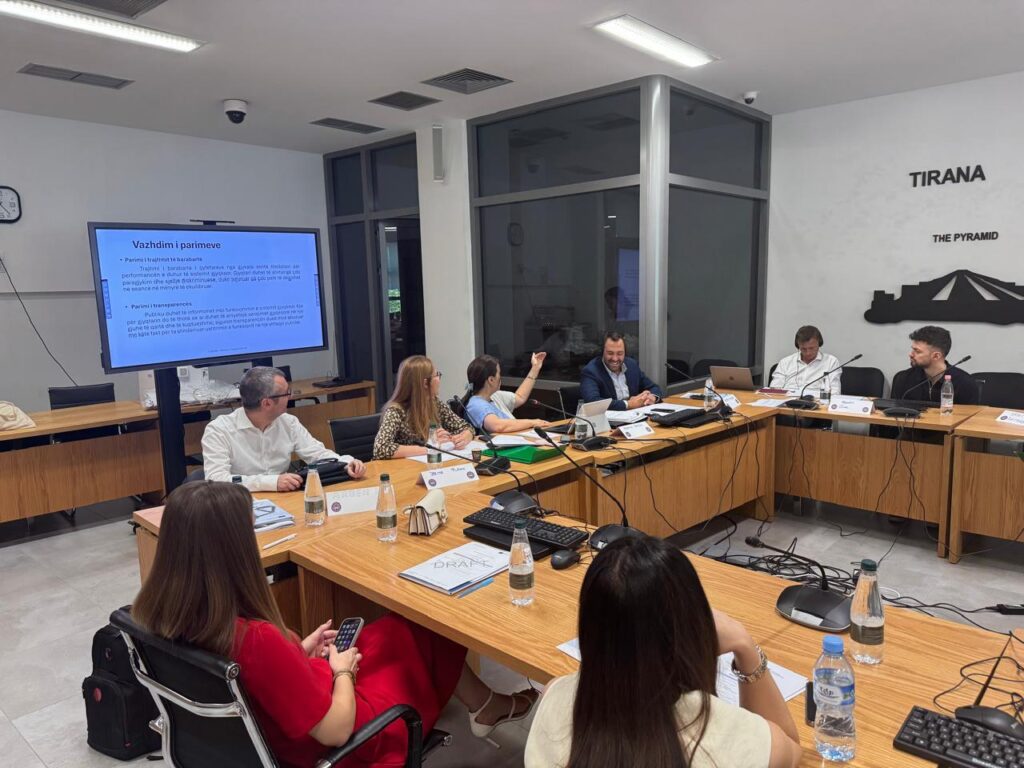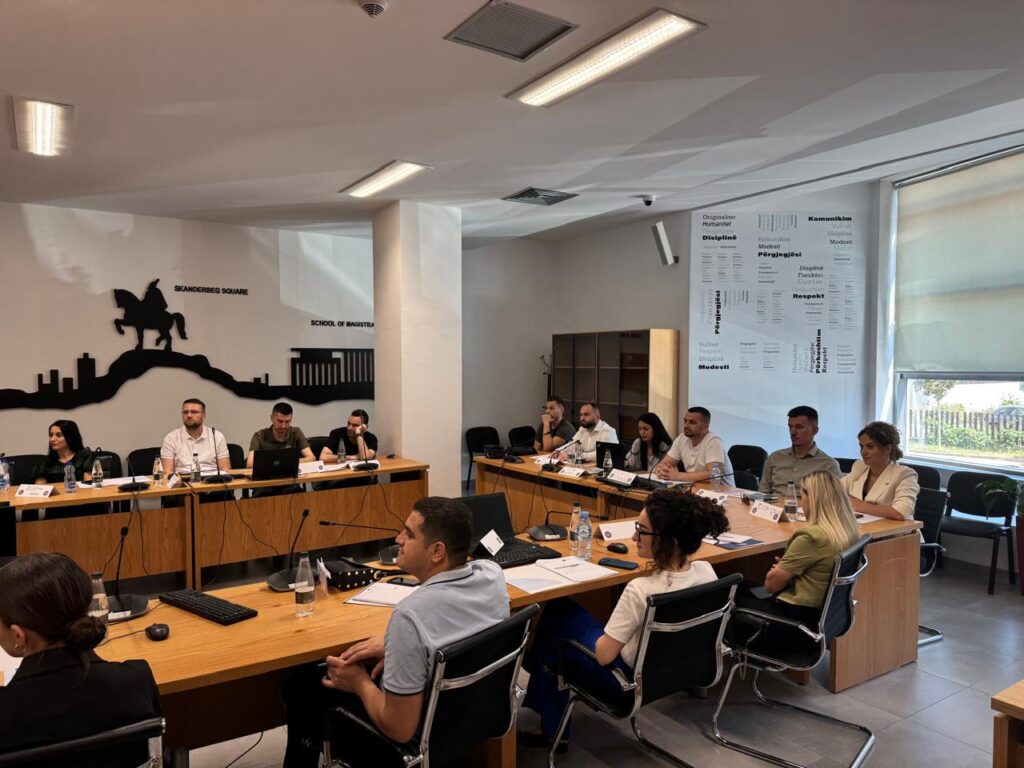- “Abdi Toptani” Street, Torre Drin Building, 10th floor, Tirana, Albania
- info@eu4justice.al
- Call Us : +355 (0) 4 562 0550
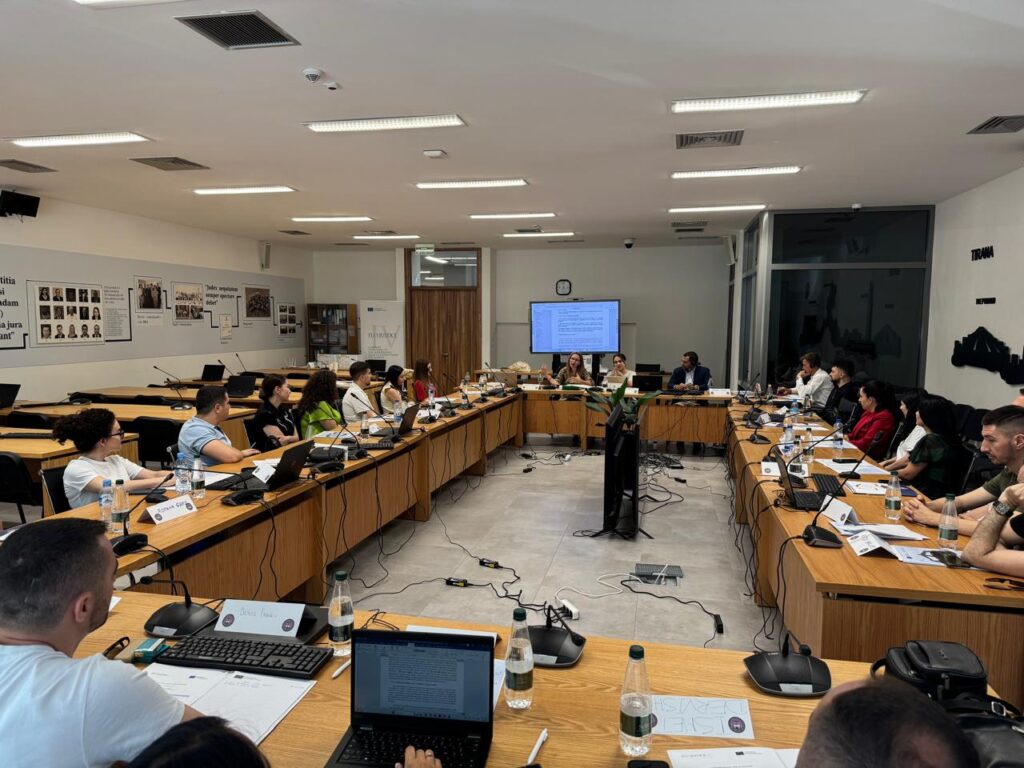
On 2 July 2025, the EU4Justice project, in cooperation with the High Judicial Council (HJC) and the School of Magistrates (SoM), organised a dedicated training workshop on the Guidelines on Ethical Dilemmas and the Code of Ethics for newly graduated candidate judges and prosecutors from the School of Magistrates. The objective of the training was to enhance participants’ understanding of ethical standards and to examine practical ethical dilemmas encountered in judicial practice, as addressed in the Guidelines.
Opening remarks were delivered by the panel members.
Ms Irena Plaku, HJC Member and Chair of the Committee on Ethical and Professional Evaluation, emphasised the central role of ethics in judicial performance and ethical and professional evaluation of judges.
Ms Albana Boksi, Ethics Advisor to the HJC and Judge of the Supreme Court, acknowledged the substantial contribution of the EU4Justice project to the development and drafting of the Guidelines. She highlighted that two Spanish Supreme Court Judges were deployed by the project as short-term experts, providing specialised input and comparative perspectives drawn on relevant aspects of the Spanish judicial experience, which significantly informed both the structure and content of the Guidelines.
Mr Arturo Valdes, EU4Justice Key Expert, underlined that ethical considerations are not confined to performance evaluation of magistrates but are fundamental to the integrity of daily judicial conduct.
Ms Boksi then delivered a structured presentation of the Guidelines on Ethical Dilemmas, made available for public consultation on the official HJC website. Her presentation outlined the foundational ethical values, the relevant legal framework, and the principal categories of dilemmas covered—particularly those concerning judicial independence, impartiality, and participation in public discourse.
The workshop continued with an interactive session involving candidate judges and the panel, also joined by Mr Klodian Kurushi, HJC Member and Chair of the Career Development Committee. Discussions focused on concrete ethical dilemmas and challenges, including the appropriate use of social media, public commentary on ongoing cases, participation in public or professional events, the need to maintain appropriate boundaries in professional relationships, the display of religious symbols in court hearings etc.. Panel members contributed reflections based on their own judicial experience in addressing such matters.
This training marks the first in a series of four regional workshops to be delivered under Sub-activity 1.3.1.9 of the EU4Justice Project Workplan, scheduled to take place across three regions during October and November 2025. The initiative forms part of broader efforts to promote a strong and sustainable ethical culture within the Albanian judiciary through structured dialogue and practical engagement with ethical and professional standards.


